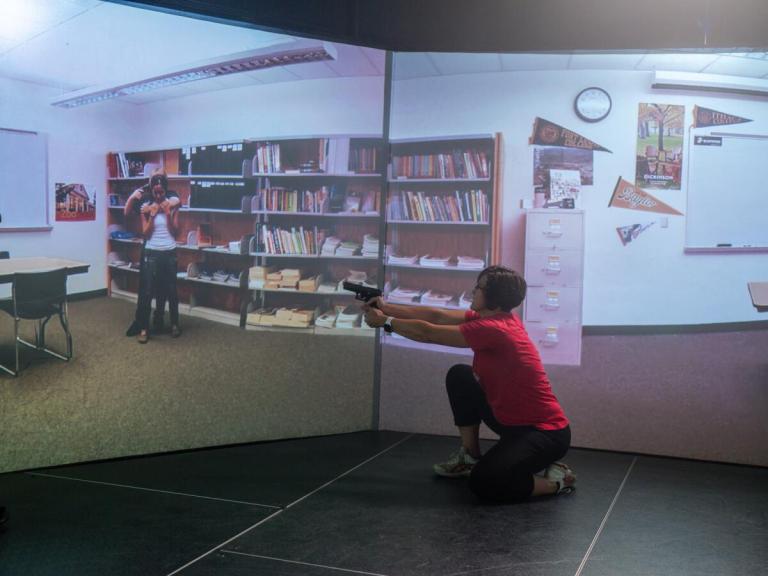
The Only Technique To Learn Something New
Someone stole $90 million from a company I was involved in. I'm a poor judge of people. The company collapsed.
Someone stole $90 million from a company I was involved in. I’m a poor judge of people. The company collapsed.
Some things I can’t learn. I tend to like people too much.
So it’s hard for me to be a good judge of people, no matter how much I try. So I find other people who are good at judging people and I ask them to help me.
Don’t force yourself to learn something if you don’t want to or it’s not a natural talent.
What’s the role of talent? Very small. But you have to start with it. Talent is the seed of skill.
How do you know if you are talented? If you loved it when you were ten years old. If you dream about it. If you like to read about it. Read the below and you’ll know what you are talented at.
Trust me when I say: everyone is talented at many things.
In the past 20 years I’ve wanted to learn how to do some things really well. Writing, programming, business skills (leadership, sales, negotiating, decision-making), comedy, games.
So I developed a ten step technique for learning.
LOVE IT
If you can’t start with “love” then everyone who does love will beat everyone who “likes” or “hates”.
This is a rule of the universe. The first humans who crossed the arctic tundra from Siberia to Alaska in -60 degree temperatures had to love it.
The rest stayed in the East Africa Savannah.
The very first day I wrote a “Hello, World” computer program I dreamed about computers. I woke up at 4am to get back to the “computer lab” and make even bigger programs.
When I first started to write every day, I would write all day. I couldn’t stop. And all I wanted to talk about with people were different authors.
When I was 10 years old I wrote a gossip column about all my fellow 5th graders. I read every Judy Blume book. I read everything I could. I loved it.
Most of my friends got bored with me and soon I was very lonely. Except when I was writing.
READ IT.
Bobby Fischer wasn’t that good at chess. He had talent but nobody thought much of him.
So around the age of 12-13 he disappeared for a year. He did this later in his 20s.
But at 13 when he came back on the scene he was suddenly the best chessplayer in the US, won the US championship, and became the youngest grandmaster in the world.
How did he do it? He barely played at all during his year of wandering.
Instead he did two things:
a) He studied every game played in the prior century. In the 1800s.
When he came back on the scene he was known for playing all of these antiquated openings but he had improvements in each one. Nobody can figure out how to defeat these improvements.
In fact, the final game of the World Championship many years later, in 1972 when he was playing Spassky, he brought out his 1800s arsenal to become World Champion.
Spassky desperately needed to win to keep the match going. Fischer needed to draw to win the title.
Spassky started with a very modern attacking opening (“The Sicilian”) But then around 13 moves in, all of the commentators watching gasped.
Fischer had subtly changed the opening into an old-fashioned very drawish 1800s opening called “The Scotch Game”. Spassky didn’t have a chance after that.
b) He learned enough Russian to read the Russian chess magazines. At the time, the top 20 players in the world were all Russian. The Americans didn’t really have a chance.
So Fischer would study the Russian games while all of the Americans were sitting around with openings and styles the Russians already knew how to defeat.
Consequently, when Fischer competed in the US championship in the early 60s it was the first complete shutout, all wins and not a single draw.
Studying the history, studying the best players, is the key to being the best player. Even if you started off with average talent.
TRY IT. BUT NOT TOO HARD..
If you want to be a writer, or a businessman, or a programmer, you have to write a lot, start a lot of businesses, and program a lot of programs.
Things go wrong. This is why quantity is more important than quality at first.
The learning curve that we all travel is not built by accomplishments. It’s only built by quantity.
If you see something 1000 times, you’ll see more than the person who sees the same thing only ten times.
Don’t forget the important rule: the secret of happiness is not “being great” – the secret is “growth”.
If you only “try” you’ll get to your level that is natural for you. But growth will stop and you won’t be happy.
GET A TEACHER (PLUS THE 10X RULE).
If I try to learn Spanish on my own, I get nowhere. But when I go out (and now marry) someone who is from Argentina, I learn more Spanish.
With chess, writing, programming, business, I always find someone better than me, and I set a time each week to ask them tons of questions, have them give me assignments, look over my mistakes and tell me where I am wrong.
For everything you love, find a teacher and that makes you learn 10x faster.
In fact, everything I put on this list, makes you learn 10x faster. So if you do everything on this list you will learn 10 to the 10th power faster than anyone else.
That’s how you become great at something.
STUDY THE HISTORY. STUDY THE PRESENT.
If you want to learn how to be a GREAT programmer (not just good enough to program an app but good enough to be GREAT, study machine language.
Study 1s and 0s. Study the history of the computer, learn how to make an operating system, and Fortran, Cobol, Pascal, Lisp, C, C++, all the way through the modern languages of Python, etc.
If you want to write better, read great books from the 1800s. Read Hemingway and Virginia Woolf and the Beats, and the works that have withstood the test of time.
They have withstood the test of time. versus millions of other books, for a reason. They are the best in the world.
Then study the current criticism of those books to see what you have missed. This is just as important as the initial reading.
If you want to study business, read biographies of Rockefeller, Carnegie, the first exchange in Amsterdam, the junk-bond boom, the 90s, the financial bust. Every Depression. All the businesses that flourished in every depression.
Read “Zero to One” by Peter Thiel. Watch “The Profit” on CNBC. Read about Steve Jobs. Read about the downfall of Kodak in “The End of Power”.
Don’t read self-help business books. They are nothing. You are about to enter a great field, the field of innovation that has created modern society. Don’t read the average books that came out last year.
Step up your game and read about the people and inventions that changed the world into what it is today.
Read how Henry Ford had to start three car companies to get it right and why “three” was the important number for him.
Read about why Ray Kroc’s technique for franchising created the world’s largest restaurant chain. Read how the Coca-Cola makes absolutely nothing but is the largest drink company in the world.
Write down the things you learn from each reading.
DO EASY PROJECTS FIRST
Tony Robbins told me about when he was scared to death on his first major teaching job.
He had to teach a bunch of Marines how to improve their sharpshooting. “I had never shot a gun in my life,” he said.
He studied quite a bit from professionals but then he came up with a technique that resulted in the best scores of any sharpshooting class before then.
He brought the target closer.
He put it just five feet from them. They all shot bullseyes. Then he moved it back bit by bit until it was the standard distance.
They were still shooting bullseyes.
Richard Branson started a magazine before he started an airline. Bill Gates wrote BASIC before his team wrote Windows.
EL James (and yes, I’m including her) wrote Twilight fan fiction, before she wrote “50 Shades of Grey”.
Ernest Hemingway never thought he could write a novel. So he wrote dozens of short stories.
Programmers write “Hello, World” programs before they make their search engines.
Many chess grandmasters recommend you study the endgame first in chess (when there are few pieces left on the board) before you study the other parts of the game.
This gets you confidence, it teaches subtleties, it gives you greater feelings of growth and improvement – all steps on the path to success.
STUDY WHAT YOU DID.
The other day I threw everything out. Everything. I threw out all my books (donated). I threw out all my clothes.
I threw out old computers. I threw out plates I never used. I threw out sheets I would never have guests for. I threw out furniture (four book cases) and my TV and old papers and everything.
I wanted to clean up. And I did.
I found a novel I wrote in 1991. 24 years ago. It was horrible.
For the first time in those 24 years, I re-read it. I studied what I did wrong (character unrelatable. Plot too obvious. Deus ex machina all over the place).
Someone told me a story about Amy Schumer, one of my favorite comedians. She videotapes all her performances.
Then she goes back to her room and studies the performance second by second. “I should have paused another quarter-second here,” she might say.
She wants to be the best at comedy. She studies her every performance.
When I play chess, if I lose, I run the game into the computer. I look at every move, what the computer suggests as better, I think about what I was thinking when I made the bad move, and so on.
A business I was recently invested in fell apart. It was painful for me. But I had to look at it and see what was wrong. Where did I make a mistake. At every level I went back and wrote what happened and where I might have helped better and what I missed.
If you aren’t obsessed with your mistakes then you don’t love the field enough to get better.
You ask lousy questions: “Why am I no good?” Instead of good questions: “What did I do wrong and how can I improve?”
When you consistently ask good questions about your own work, you become better than the people who freeze themselves with lousy questions.
Example: I hate watching myself after a TV appearance. I have never done it. So I will never get better at that.
YOU ARE THE AVERAGE OF THE FIVE PEOPLE AROUND YOU.
Look at every literary, art, and business scene. People seldom get better as individuals. They get better as groups.
The Beats: Jack Kerouac, Allen Ginsberg, William Burroughs and a dozen others.
The programmers: Steve Jobs, Bill Gates, Ted Leonsis, Paul Allen, Steve Wozniak and a dozen others all came out of the Homebrew Club
The art scene in the 50s: Jasper Johns, De Kooning, Pollack, etc all lived on the SAME STREET in downtown NYC.
YouTube, LinkedIn, Tesla, Palantir, and to some extent Facebook, and a dozen other companies came out of the so-called “PayPal mafia”.
All of these people could’ve tinkered by themselves. But humans are tribal mammals. We need to work with groups to improve.
Find the best group, spend as much time with them, and as a “scene” you become THE scene.
You each challenge each other, compete with each other, love each other’s work, become envious of each other, and ultimately take turns surpassing each other.
DO IT A LOT.
What you do every day matters much more than what you do once in awhile.
I had a friend who wanted to get better at painting. But she thought she had to be in Paris, with all the conditions right.
She never made it to Paris. Now she sits in a cubicle under fluorescent lights, filling out paperwork all day.
Write every day, network every day, play every day, live healthy every day.
Measure your life in the number of times you do things. When you die: are you 2 writing sessions old? Or are you 50,0000?
FIND YOUR EVIL PLAN.
Eventually the student passes the master.
The first hedge fund manager I worked for now hates me. I started my own fund and his fund went out of business. My evil plan was ultimately to be better than him.
But how?
After all of the above, you find your unique voice. And when you speak in that voice, the world hears something it has never heard before.
Your old teachers and friends might not want to hear that voice. But if you continue to be around people who love and respect you, then they will encourage that new voice.
There’s that saying, “there are no new ideas.” But there are.
There are all the ideas in the past combined with the new beautiful you. You’re the butterfly.
Now it’s your turn to teach, to mentor, to create, to innovate, to change the world. To make something nobody has ever seen before and perhaps will never see again. ![]()











